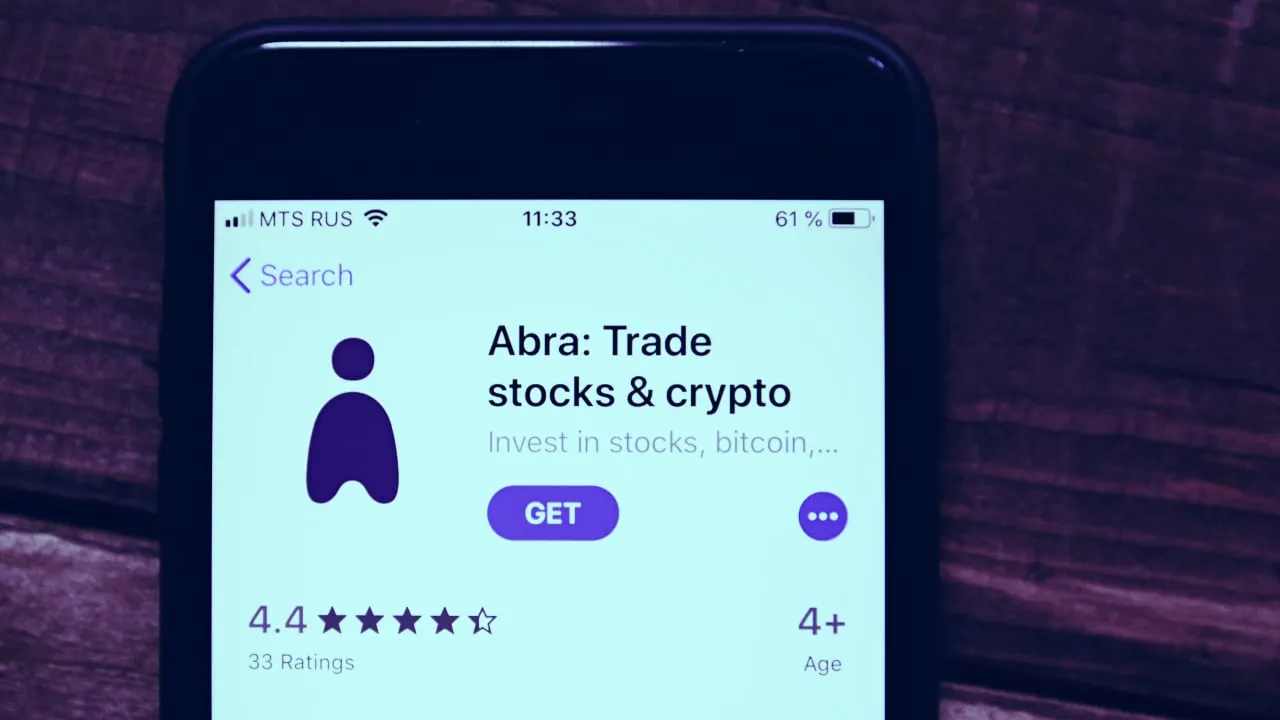In brief
- SEC and CFTC strike crypto investment platform Abra, which lets users trade tokenized versions of stocks.
- SEC claims that Abra was offering unregistered securities.
- Abra must pay $300,000 in fines as well as stop offering tokenized stocks.
The US Securities and Exchange Commission and the Commodity Futures Trading Commission today launched a joint-strike against Abra, a crypto investment platform that let its users trade tokens that represent stocks.
Abra, which also operates under the name Plutus Financial, must pay $300,000 in fines—split evenly between the SEC and the CFTC.
Abra also agreed to stop offering tokenized stocks, which were the products that made the California-based startup stand out within the crypto space. Now, Abra is back to being a plain ol’ crypto investment platform and wallet.
Those tokens Abra sold, though, weren’t actually backed by stocks; they just represented them. So why did the SEC and CFTC both offer cease-and-desist orders?
The SEC claimed that these tokenized stocks were “security-based swaps subject to US securities laws.” And the CFTC said that Abra “engaged in unlawful off-exchange swaps trading.”
So, tokenized or not, the same rules still apply. And for Abra to offer those services legitimately, it should have serviced only “eligible contract participants.” According to the SEC’s order, this means either non-US residents or US residents who meet certain conditions, such as individuals who have “at least $5 million and often $10 million invested on a discretionary basis.”
But Abra “took no steps” to ensure only its customers were eligible investors, according to the SEC. And, in fact, specifically sought out retail clients for its products, the complaint alleged.
Abra: The history
Abra started offering price exposure to some foreign currencies at the end of 2017. In the spring of 2018, it let customers invest in cryptocurrencies. And in February 2019, it started offering tokenized versions of US stocks and ETFs.
After the CFTC and the SEC kicked up a fuss in early 2019, Abra stopped offering its crypto and foreign currency based wasps to US customers; it would offer those products to non-US investors instead through its Filipino company.
But the CFTC didn’t buy it.
Even though Abra’s company in the Philippines handled those swaps, Abra’s California office “played a significant role in the swaps,” said the CFTC. “Abra employees in California designed the swap contract, including setting the contract’s price and establishing the hedging mechanism.”
Abra also promoted those products on its websites, which were frequented by US customers. Nor did it take steps to ensure that it wasn’t offering its products to US customers, said the CFTC.
What next for DeFi?
The big question is: where does this leave decentralized finance?
“Note that the legal construct Abra used in these swap contracts is essentially the same as those underlying most DeFi products. Hence, they can potentially face the same exact charges,” tweeted Maya Zehavi, a founding board member of the Israeli Blockchain Industry Forum.
Katherine Wu, an venture capitalist at Notation Capital, tweeted: “The reality here now is that any crypto businesses that want onboard the next million non-crypto native users by touching fiat or traditional fintech products will have to navigate intense financial regulations/ requirements.”
As is often the case with the US government’s crypto lawsuits, Abra agreed “without admitting or denying the findings.”
Daily Debrief Newsletter
Start every day with the top news stories right now, plus original features, a podcast, videos and more.

